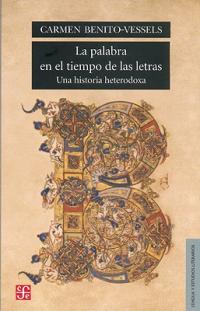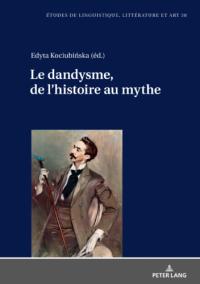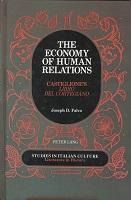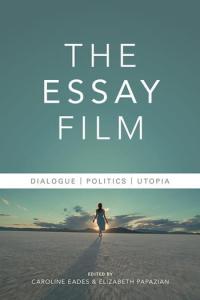Foreign language studies are overlooked. A mandate would change that.
After spending a summer immersed in Jaipur, India, one University of Maryland student argues that language learning isn’t just a personal skill—it’s a global necessity.


Research in the School of Languages, Literatures and Cultures is interdisciplinary and vibrant.
Faculty and graduate students pursue research in numerous fields of study.
In late eighteenth-century Spanish discourse, moralists and satirists attempted to redress what they deemed a grave social issue: the loss of a masculine, virtuous visibility in men, especially in young, well-heeled males. In moralist essays, the petimetre became the quintessential trope for the idle, effeminate, aristocratic Spanish man. He was created as a literary figure to stand in marked contrast to the manly hombre de bien, who represented martial valor and heteronormative privacy. Juan Antonio Mercadal, author of El Duende Especulativo sobre la vida civil (1761), delved into the fray with, among other writings, his “Discurso Nueve.” In this essay, he names and describes a type of man whom he refers to as “hermaphrodita.” Like the petimetre, he is a queer male figure who transgresses the dimorphous gendered system. By employing the term “hermaphrodite,” Mercadal conjures up images of an intersex person who retained a monstrous, almost mythical reputation in the eighteenth century. This works to configure in the mind of the reading public a man whose sexuality is abhorrent in an era of hardening heteronormative sexual roles. Mercadal’s “hermaphrodita” has the look, the walk, and the talk of a woman but still seems to be of the male sex, according to Mercadal. In effect, the satirist is employing a coded word to invent a new reality: an intergendered male who challenges what it means to be a man or a woman. By utilizing a new term to identify and describe a male who is deemed problematic along gender and sexual lines, Mercadal delineates the narrowed parameters of what constitutes a “real” Spanish man. The unintended result of Mercadal’s essay is the creation of a new identity that brings together “ser” and “aparecer,” or reality and illusion. By creating the figure of the “hermaphrodita,” Mercadal engendered the very reality he wished to combat.
In 1899, the United Fruit Company (UFCO) was officially incorporated in Boston, Massachusetts, beginning an era of economic, diplomatic, and military interventions in Central America. This event marked the inception of the struggle for economic, political, and cultural autonomy in Central America as well as an era of homegrown inequities, injustices, and impunities to which Central Americans have responded in creative and critical ways. This juncture also set the conditions for the creation of the Transisthmus—a material, cultural, and symbolic site of vast intersections of people, products, and narratives. Taking 1899 as its point of departure, Dividing the Isthmus offers a comprehensive, comparative, and meticulously researched book covering more than one hundred years, between 1899 and 2007, of modern cultural and literary production and modern empire-building in Central America. The book examines the grand narratives of (anti)imperialism, revolution, subalternity, globalization, impunity, transnational migration, and diaspora, as well as other discursive, historical, and material configurations of the region beyond its geophysical and political confines. Focusing in particular on how the material productions and symbolic tropes of cacao, coffee, indigo, bananas, canals, waste, and transmigrant labor have shaped the transisthmian cultural and literary imaginaries, the book develops new methodological approaches for studying cultural production in Central America and its diasporas. Monumental in scope and relentlessly impassioned, this work offers new critical readings of Central American narratives and contributes to the growing field of Central American studies.
This essay revisits the production of Chicana/Latina feminist narratives identified with anti-imperialist struggles and hemispheric solidarity movements in Central America in the 1980s and 1990s. Through their texts, transfronterista feminists such as Gloria Anzaldúa, Ana Castillo, Carole Fernández, Graciela Limón, Demetria Martínez, Cherrie Moraga, Lourdes Portillo, Nina Serrano, Alma Villanueva, and Helena María Viramontes, among others, not only challenged U.S. hegemony in the Western hemisphere, but also resisted the enforcement of multiple borders across the Americas.'' In the process, they transnationalized Chicana/Latina struggles, histories, discourses, and feminisms beyond the U.S.-Mexico borderlands. However, their transfronterista feminist logic and anti-colonial imperative, while appealing to transnational Third World feminist struggles and affinities, produced a "fiction of solidarity" predicated on Chicana/Mexicana subjectivities. Examining the production of many of these solidarity fictions, and especially Portillo and Serrano's film, “After the Earthquake,” and Martinez's semi-autobiographical novel, Mother Tongue, this essay seeks to shift the primary focus of Chicana/o resistance, resilience, and hybrid borderizations that has shaped many Chicana/Latina narratives about the wars in Central America and to rethink transfronterista alliances and narratives in the Americas from a Central American subjective location.

Edited By Edyta Kociubińska

The notion of a socially engaged dandyism – let alone a political one – seems to be antithetical to the definition proposed by Charles Baudelaire, that “A Dandy does nothing. Can you imagine a Dandy speaking to the people, except to scoff?” Yet it is from within the inherently political framework of a cultural revolution, undertaken in the first half of the nineteenth century by young adepts of the Romantic movement, that many of the poses and clichés surrounding the figure of the fin-de-siècle dandy originate. Examining the texts that Gautier, Borel, and their peers publish during this period, as well as satirical articles written about them in the press, this essay theorizes the young Romantics’ transgressive self-fashioning in the aftermath of Hernani as a kind of militant dandyism.
![Entre alambradas y exilios. Sangrías de las Españas y terapias de Vichy" [Between Barbed Wire and Exile. Spanish Sangrías and Vichy Therapies]](/sites/default/files/styles/headshot/public/2021-07/entre_alambradas_portada-contraportada_0.jpg?itok=5X9mcleX)
"Entre alambradas y exilios. Sangrías de las Españas y terapias de Vichy" [Between Barbed Wire and Exile. Spanish Sangrías and Vichy Therapies] by José María Naharro-Calderón, Professor of Spanish Literature, Iberian Cultures & Exile Studies at the University of Maryland, discusses the complex historical memories that surround the Spanish Civil War (1936-39) exile narratives around concentration camps, identity and political confrontations. They resurface again through planetary violences and diasporas, populisms, post-truths, brexit, elections in the USA, or constitutional challenges in Spain (Catalonia, Basque Country.) This detailed study explores diasporas and concentration camp experiences reflected in essay and literary contributions (Celso Amieva, Manuel Andújar, Max Aub, Otilia Castellví, Eugenio Ímaz, Eulalio Ferrer, 1956 Literature Nobel recipient and UM Professor Juan Ramón Jiménez, Silvia Mistral, Mercè Rodoreda, Jorge Semprún, etc.,) image and film (Mario Camus, María Luisa Elío, Fernando Fernán Gómez, Jomí García Ascot, Agustí Villaronga,) comic books (Manuel Altarriba, Josep Bartolí, Kim, Paco Roca,) and photography (Robert Capa, Agustí Centelles, Manuel Moros, Gerda Taro.) It also studies kitsch best sellers (Javier Cercas, Arturo Pérez Reverte, Andrés Trapiello), and the democratic contradictions that lead to freedoms suppressions and concentration camps, such as in 1939 France, as well as the pending questions of Francoist memories: "The Uncivil Mountain" or the Valley of the Fallen outside Madrid. Last but not least, it evaluates Spain’s Transition to democracy and today’s terrorist and nationalist challenges, paving the debate away from ineffective Vichy type therapies and/or Spanish sangrías.

Among current educational challenges are an increasing number of English Language Learners (ELLs) and a lack of bilingual special educators adequately prepared in the areas of bilingualism, cultural diversity and disability. This chapter begins by exploring learning disabilities (LD) in ELLs, the nature of LD and the need for bilingual special educators. It next considers research on the lack of appropriate assessments, disproportionality of ELLs in special education, and best instructional practices. It ends by looking at future issues such as appropriate teacher certification, new uses of technology and college age students and adults with learning disabilities. Lavine, R. Z. & Goode, C. “Special Educators and Spanish”. Ed. Manel Lacorte. In The Routledge Handbook of Hispanic Applied Linguistics, New York: Routledge, 2015: 438-456.
This film describes the complicated relationship in an improbable “family,” alternating between moments of strong connections in the midst of struggles, and moments when fits of rage, anger, and passion re-actualize a sense of loss and “never quite making it.” The chapter also discusses the idea of “normalcy,” based on Michael Warner’s work The Trouble with normal, by examining how it relates to the coming-of-age narrative, and demonstrates how failure, and ambivalence on a personal, relational level as depicted in Mommy can also translate a collective sentiment about contemporary Québec, and the world we live in. Full reference: “Joy, Melancholy, and The Promise of Happiness in Xavier Dolan’s Mommy (2014),” ReFocus: The Films of Xavier Dolan, ed. Andrée Lafontaine, Edinburgh University Press, 2019, pp. 177-190.

With its increasing presence in a continuously evolving media environment, the essay film as a visual form raises new questions about the construction of the subject, its relationship to the world, and the aesthetic possibilities of cinema. In this volume, authors specializing in various national cinemas (Cuban, French, German, Israeli, Italian, Lebanese, Polish, Russian, American) and critical approaches (historical, aesthetic, postcolonial, feminist, philosophical) explore the essay film and its consequences for the theory of cinema while building on and challenging existing theories. Taking as a guiding principle the essay form's dialogic, fluid nature, the volume examines the potential of the essayistic to question, investigate, and reflect on all forms of cinema—fiction film, popular cinema, and documentary, video installation, and digital essay. A wide range of filmmakers are covered, from Dziga Vertov (Man with a Movie Camera, 1928), Chris Marker (Description of a Struggle, 1960), Nicolás Guillén Landrián (Coffea Arábiga, 1968), Pier Paolo Pasolini (Notes for an African Oresteia, 1969), Chantal Akerman (News from Home, 1976) and Jean-Luc Godard (Notre musique, 2004) to Nanni Moretti (Palombella Rossa, 1989), Mohammed Soueid (Civil War, 2002), Claire Denis (L'Intrus, 2004) and Terrence Malick (The Tree of Life, 2011), among others. The volume argues that the essayistic in film—as process, as experience, as experiment—opens the road to key issues faced by the individual in relation to the collective, but can also lead to its own subversion, as a form of dialectical thought that gravitates towards crisis.